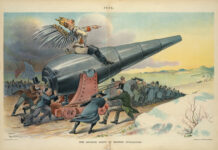What would you do to realize a dream? Today, violence is rampant in the world. But that social unrest is only evidence of what transpires when people will do anything to fulfill a dream. Currently, we are living in a moment where the fulfillment of materialism is a Western dream that has ruptured global communities.
In his book, Between the World and Me, Ta-Nehisi Coates characterizes people who primarily live in the Western world as Dreamers. These Westerners have wet dreams of materialism. They want big houses on big lots, quartz countertops for designer kitchens. They want German automobiles and mangos in the wintertime. They want endless closets of endless clothes, and then they want to take those clothes to consignment for more clothes, because frankly, it is never enough.
Their materialism is never enough.
They lament: this house is too small/ it doesn’t fit all our stuff /we need a bigger house to fit all our stuff/our kids can’t share rooms/they’re both girls, but they’ll kill each other/we need another room/and what if we have more kids/I don’t want more kids/but let’s get more rooms in case we have more kids/I like to vacation/let’s vacation here/let’s vacation there/we need a vacation home/and a boat/how about a second vacation home/and another boat.
The Dreamers have a bottomless desire for more and more stuff. And that ultimately affects all of us. It effects how all of us live. Because those who like to be called white, in the West, if they are to realize their dreams, it comes at the expense of all our livelihoods.
In order to get their materials, they have to control us. Control is achieved through lynching, mangling, raping, gashing, and bashing of our brains and bodies. For the Dreamers, “it is traditional to destroy the black body—it is heritage.” Carnage is meant to instill fear, so as not to interfere with the Dreamer’s attainment of material things.
As Coates describes, the force of that control has always been violent and brutal.“Through the pillaging of life, liberty, labor, and land; through the flaying of backs; the chaining of limbs, the strangling of dissidents; the destruction of families; the rape of mothers; the sale of children; and various other acts meant, first and foremost, to deny you and me the right to secure and govern our own bodies.”
How the Dreamers get their stuff—and for cheap—is by depriving the rest of us of our lives and stuff: to deprive Africa of her natural resources, to deprive Africans of their bodies and their freedoms.
During slavery, African bodies were materials for Dreamers to collect. “The bodies were an aspiration, lucrative as Indian land, a veranda, a beautiful wife, or a summer home in the mountains… the bodies were the key to a social club, and the right to break the bodies was the mark of civilization.”
But the Dreamers will tell you that it is not their violence that it is harming the world. It is your violence in your community.
To which Ta-Nehisi Coates writes:
“Black-on-black” crime is jargon, violence to language, which vanishes the men who engineered the covenants, who fixed the loans, who planned the projects, who built the streets and sold red ink by the barrel.”
“There is a great deception in this to yell “black-on-black crime” is to shoot a man and then shame him for bleeding.”
In America, “the killing fields of Chicago, of Baltimore, of Detroit, were created by the policy of the Dreamers.” By the Dreamers’ beloved pastime of mass incarceration, African Americans should be handcuffed and locked in cages to work for fourteen cents per hour while incarcerated. Only then, off the cheap labor of African Americans, can the Dreamers afford their McMansions, while their kids ride in minivans with leather seats to expensive private schools.
It is no secret that atrocities like the transatlantic slavery had no purpose than to fill the base desires of the people who would like to be called white. The toiling and labor of African bodies for hundreds of years was only so “whites” would have plentiful sugar cane and cotton—to satiate many a Dreamer’s sweet tooth and to saturate their pockets with dollars so they could buy more stuff.
Now Dreamers launch global wars to steal oil, which they sell to get money to buy more stuff. The goal of everything Dreamers do is to buy more stuff. To have more stuff. Materialism has avalanched into more than a shiny toy. It is now a pathological obsession, to attain by any means, including brute violence.
What at all are humans to do when we desire to inhabit a civilized world, a world that is overpopulated with materialist barbarians?
Of utmost importance is to not buy into the temptations of materialism. The stuff is just that… stuff. It holds no true value, which is why you always need more of it. It is unfulfilling. And honestly, to look at a woman’s closet with dozens of high heels is just downright nauseating.
Instead, we should embrace “a rapture that comes only when you can no longer be lied to, when you have rejected the Dream.”
Coates also warns us to not forget: “You cannot forget how much they took from us and how they transfigured our very bodies into sugar, tobacco, cotton, and gold.”
The Dreamers want you to forget. “The forgetting is a habit, is yet another necessary component of the Dream. They have forgotten the scale of theft that enriched them in slavery; the terror that allowed them, for a century, to pilfer the vote; the segregationist policy that gave them their suburbs.”
In the wild, an elephant’s memory is key to its survival. When one encounters unfamiliar elephants, it assumes a defensive position. Under the threat of violence, instinctively, elephants protect their herd.
When we encounter wild beings with wild dreams, we must similarly protect ourselves and our bodies. Surely, we cannot afford to forget what they have done and are willing to do to attain their materials, to realize a bottomless dream.











Some pure essay again from Nefetiti’s candid reflections on Ta-Nehisi Coates’ Book: Between the World and Me. The reality of Materialism and Capitalism is examined against the backdrop of African flesh and blood, which was central to establishing much of the shinning cities of the West we admire. I am pulled asunder when I look at Ghana and see leaders who are oblivious to this understanding. This is a wonderful reflection.
Isn’t it amazing how fast we have lost our focus on relevant issues and have outsourced our birthrights? Some of our present crop of leaders cannot do the thinking, how sad?
Whenever I read a piece of text that pulses with the cogency of its inherent truth, a bell goes off in my brain that triggers a chain reaction in my whole being. For the few moments of its duration, I am transported on a carpet of inner peace and a feeling of well-being, buoyed by the validation I feel in having another person’s considered thoughts and comments, validate my deeply sentiments.How can anyone improve on a characterisation of the course of materialism as having morphed into a ‘pathological obsession’? It is as near a perfect description of the phenomenon that continues to sap the very life out of black folk as ‘makes no never mind’, as a Southern cracker would say, with pithy dispatch! In my own verbose fashion, I say thanks for sharing this essay.
A wonderful essay! “For the few moments of its duration, I am transported on a carpet of inner peace.” This did it for me as well. So, what can I say Fifi? I will desist from attempting to add anything more to your fine words.
It takes one to know one, lol. I enjoy your posts immensely.
Ey Fifi kɛ Akosua M. Abeka, nyɛ baa gbe wɔ ee kɛ blɔfo ɛ! This is erudite. The sagacity in these words by Nefetiti – the beautiful one – has completely captivated the literati of my household, because of its constantly carefree and exciting language in descriptions of our collective trauma. For a tyro like myself, I am constantly learning. I enjoyed reading this. Thanks for sharing your thoughts – all of you really!
Hahaha! You’re a dab hand yourself, as I’ve noticed!
Hahahahaha Solomon Azumah-Gomez, it’s a free world as my brother would say…. We need more of such blofo to keep us on our toes Lolxxxx
We need our own Nobel price award but in a different name like “Grandmother Africa scholastic award”, lol to celebrate the write-up work of all of you. Hahahaha I am happy for the future of mother Africa
Tweneboah Senzu, I like your idea. I am going to strongly urge us to think carefully through what its African traditional underpinnings should comprise of. And I am going to task myself, you and others to seek some funding for it. This is progressive thinking!
Awo Awo Awoooo
Agba e, Bleku tsoo
Esu esu
enam enam
Manye manye
Adiban kpotoor
Woye Gbo ni woye Gbiena
Wofee moomo
Alonte fitaa ko aka fo woten
Ni wose afi wota shi neke noo
Tswa Omanye aba
Ey Tweneboah Senzu. Nakai!
My friend Solomon Azumah-Gomez, I like the way you change “Alonte din ko aka fo woten” to “Alonte fitaa ko aka fo woten”. Your presence of mind is creatively refreshing. Brilliant!
With all due respect to the author, and I say this with sadness, the essay or article is an exercise in black apologetics and denialism and bad philosophy. Its just awful.
Ayelam Valentine Agaliba, Ta-Nehisi calls people like you Dreamers – people who like to forget. Black apologetics? Denialism? But it is not bad philosophy to deny that slavery was a violent enterprise? It is not bad philosophy to forget that the Black body was continuously brutalized for over 400 years. You want us to forget. We won’t. Because if we do, this is what (by the New Yorker) is going to happen: “New Yorkers drink more coffee than residents of almost any other city. And Haiti grows enough beans to supply half of what we drink. Why not barter: coffee for us, and help with production methods for them? The principles of sustainable development could become one of New Yorks exports.” This is 2015 and white people at the New Yorker still think like this: about enslaving Africans to produce coffee for their mass consumption. I remember these were the same words they used with Sugar, Diamonds, Oil, Gold, etc. What is wrong with them? And you, what is wrong with you?
Who has denied that slavery was a violent enterprise ? Can you provide the quotations?
It is not necessary to engage in this circular debate. I might chase your tail all day and will certainly never find it. Thanks, you are entitled to your opinion, after all.
The last time I checked which was yesterday, the Jews are still reminding us of the Holocaust every day. No one calls it Jewish apologetics and denialism or bad philosophy. Every book they write, they must talk about their suffering in the Holocaust, why shouldn’t we do the same.
Very well put Solomon Azumah-Gomez and Gbemela Kobla. Aptly done!
Jonathan …. that may be, but what if I may ask is the relevance?
For what it is worth my comments above are not directed at Mr Coates.
And let me tell you something, when my great great grandfather Amaliya rebelled against Babatu in Bulsaland (northern Ghana) he rebelled against a black army led by black men. I urge you all to go to Paga or Po or even Salaga and ask the descendents of the slaves there’s who enslaved them?
I see your point Ayelam Valentine Agaliba. So, African Americans, like Mr Coates can whine and whimper about the brutality and savagery of slavery, but someone like me, an African, because African slaves were sold by other Africans first to the white man, I should have no right to speak of such violence! I get it now. You charge Africans for selling Africans. Ok. Fair enough. But your wet dream that your great great grandfather was the only grandfather who fought against slave raiding Africans is not accurate, my friend! My great great grand aunt was sold into slavery, actually. If you feel African Americans suffered and for that matter are entitled to whine and whimper, you must understand we, me – my great great grand uncles – suffered too, they did suffer here first! Or? Do you still think I am not qualified to speak of the brutality of slavery and how much it has cost us? Hence your charge of denialism and apologetics?
There were Jews who also collaborated with Hitler. Check who Stephanie Von Hohenloe was.She was Hitler’s princess. But Jews don’t say because some Jews supported Hitler, they can’t complain about the Holocaust.
The issue with some people is simply this: if aliens descended on Earth and were kidnapping people, with other people’s help, instead of coming together as HUMANS to fight the aliens, some people here, no names, but some people here, would rather choose to fight other HUMANS. Its this simple with some people! You cannot get to the bottom of any issue with these people. But, it’s the reality of the world we live in.
What kind of logic is this?
And where was it implied you are not entitled to whine and whimper? By all means you may whine and whimper all you like.
———-
I have not read this Mr Coates, so I will reserve any comment about what he may or may not have said.
The review of Coates is interesting on three levels:
First it would seem that
1. What the old crypto socialists used to call possessive individualism ( a bankrupt concept by the way with no explanatory value) is here called ”materialism”. No distinction, it seems, is made between metaphysical materialism (which is an ontology, a form of monism) and economic materialism (economism)
2. Conveniently Mr Coastes (or so it would seem) has invented a term for those who might conceivably oppose him theoretically. These he calls dreamers. Presumably Mr Coates does not live in the West (or, if he does, he cannot be a dreamer) But this conclusion seems to be in conflict with his premises.
3. He seems to want to downplay African agency. If Africans were involved at all in slavery, their role was secondary. And by the logic of his argument (this inference is based purely on the review) those Africans who actually did the raiding and brutalisation in the forests and deserts of Africa were motivated by desires that transcend mere materialism.
Ah well. I guess I had better read this Mr Coates. Thanks for the engagement. If I am mistaken I will come back and apologise after I read Mr. Coates